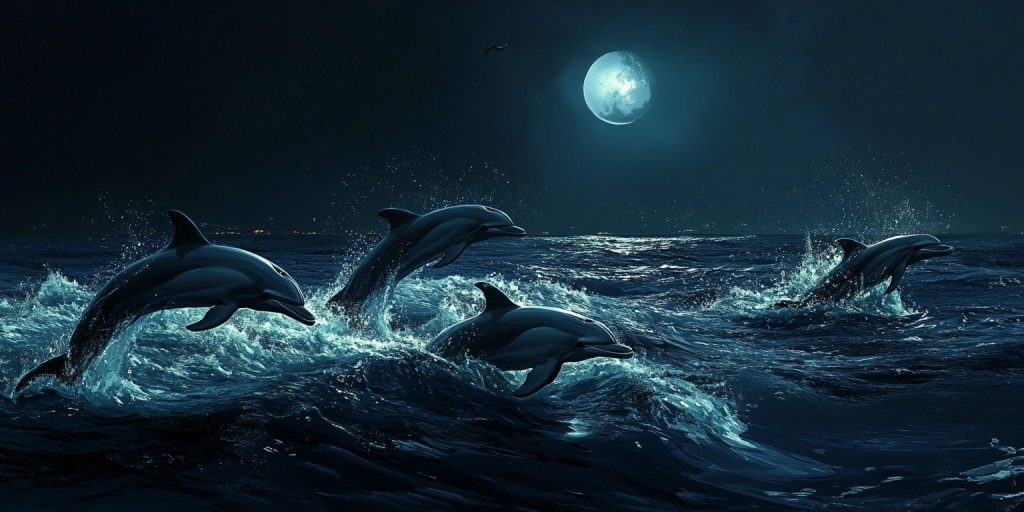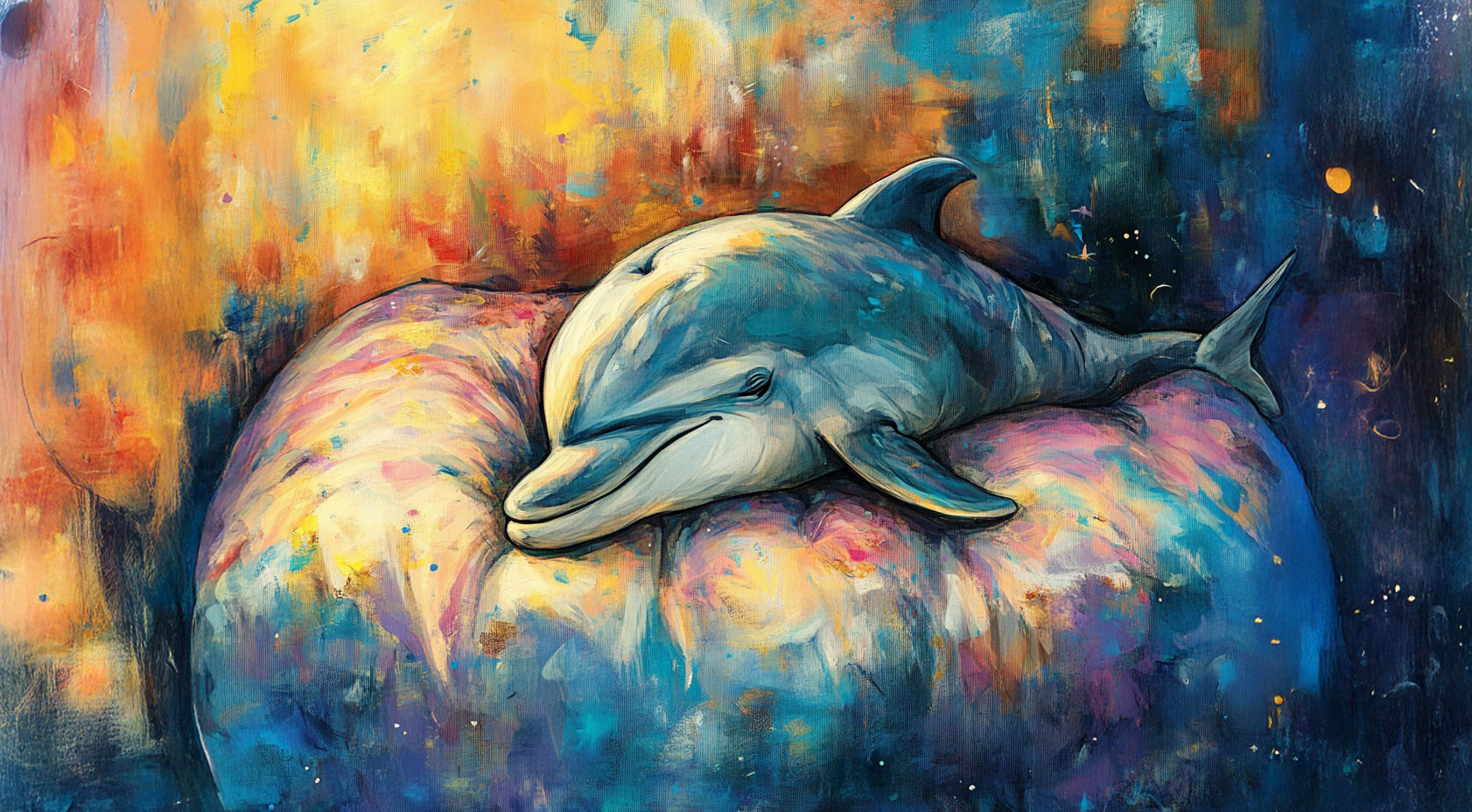Short Answer: Yes, Dolphins Sleep with One Eye Open
Dolphins live in the wild ocean, where they need to keep moving to breathe and stay safe. So how do they sleep without sinking or becoming easy targets for predators? The answer is pretty amazing. They sleep with one eye open and half of their brain still awake.
This unique way of resting, called unihemispheric slow-wave sleep, helps dolphins stay alive in a world where stopping completely could be deadly. In this post, we’ll explore how dolphins sleep, what they do at night, whether they can sleep underwater, and how they get their water intake.
Unlike humans, dolphins can’t fully fall asleep without putting themselves at risk. If they lost all awareness, they might drown or get caught by predators. So, dolphins developed a clever system.
Here’s how it works:
- One side of their brain sleeps, while the other side stays alert.
- One eye stays closed, and the other remains open to watch for danger or navigate the water.
- They alternate sides every few hours to give both halves of their brain the rest they need.
This allows dolphins to get rest while still breathing, swimming slowly, and staying aware of their surroundings. It’s survival sleep made for life at sea.
How Long Do Dolphins Sleep?
Dolphins don’t have long stretches of deep sleep like humans. Their sleep comes in short periods throughout the day and night. On average, dolphins sleep about 4 to 8 hours in a 24-hour cycle, but never all at once.
Their rest looks different than ours:
- Dolphins may float near the surface or swim slowly in a circle while sleeping.
- They often rest in calm, shallow water or protected bays.
- Sleep usually comes in short bursts, lasting a few minutes to an hour at a time.
Because they still need to come up for air, dolphins often rise to the surface while resting, then dip back below.
Can Dolphins Sleep Underwater?
Yes, but only for short periods and in special ways. Dolphins are mammals, which means they need to breathe air. They can’t breathe underwater like fish, so full deep sleep underwater would be risky.
However, dolphins can:
- Hold their breath while resting just below the surface
- Float or slowly swim so they’re able to come up for air when needed
- Use part of their brain to stay aware of when to breathe, even while mostly asleep
This controlled breathing is what makes unihemispheric sleep possible. Even while resting, dolphins know when to surface and take a breath. It’s automatic, but it never fully shuts off.
Do Dolphins Drink Water?
Dolphins live in saltwater, but they don’t drink it the way humans drink fresh water. In fact, drinking seawater would dehydrate them.
Instead, dolphins get most of the water they need from the food they eat. Fish and squid contain fluids that are enough to keep them hydrated.
Also:
- Dolphins have special kidneys that help manage salt levels in their bodies
- They rarely, if ever, drink seawater, and if they do, they can filter some of the salt out
Their diet and biology are perfectly designed for ocean living. They don’t need to seek out fresh water to stay alive.

What Do Dolphins Do All Night?
Even at night, dolphins are active. Since they don’t sleep the way we do, their nighttime routines include a mix of light resting and movement.
Here’s what dolphins typically do during nighttime hours:
- Slow travel or “cruise swimming” to stay near their group (pod)
- Hunting and feeding, especially for species like bottlenose dolphins that chase fish schools
- Taking turns resting, so the group stays safe
- Vocal communication, since some dolphins continue to echolocate and stay in touch with each other even while partially asleep
Dolphins are not fully nocturnal or daytime animals. They’re active around the clock, with short rest breaks spread out through the day and night.
Half Awake, Fully Amazing: How Dolphins Sleep at Sea
Dolphins are some of the most fascinating animals in the ocean, not just because of how they play and communicate, but because of how they sleep. Their ability to rest with half their brain still awake, keep moving while sleeping, and survive without ever fully shutting down is one of nature’s smartest designs.
Whether they’re swimming through moonlit waters or resting quietly near the surface, dolphins have found a way to balance sleep and survival in a way no human ever could.











